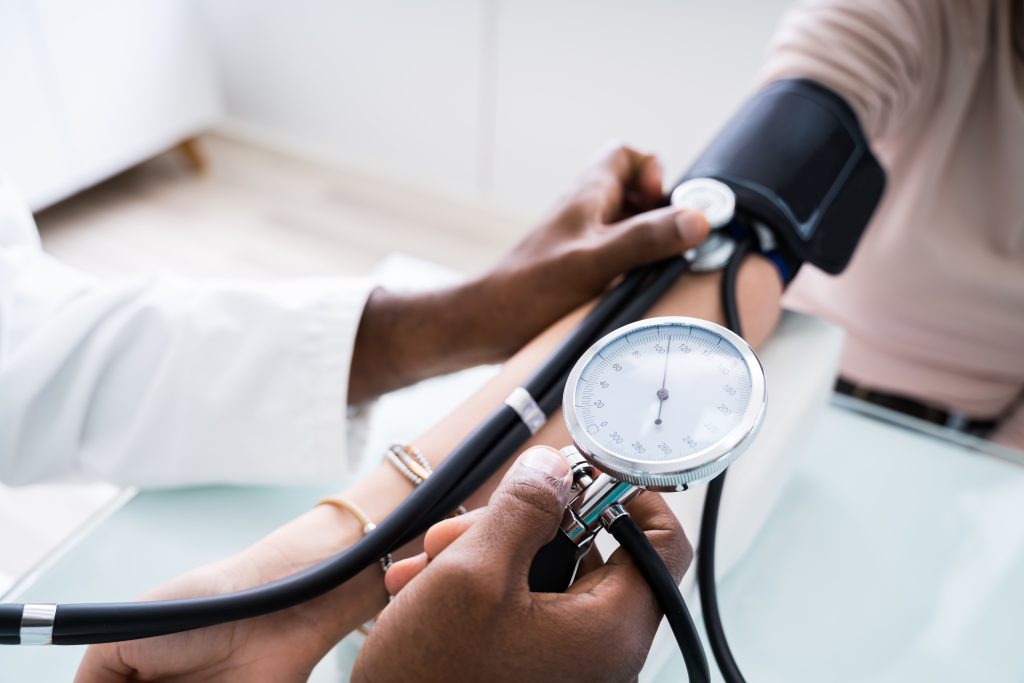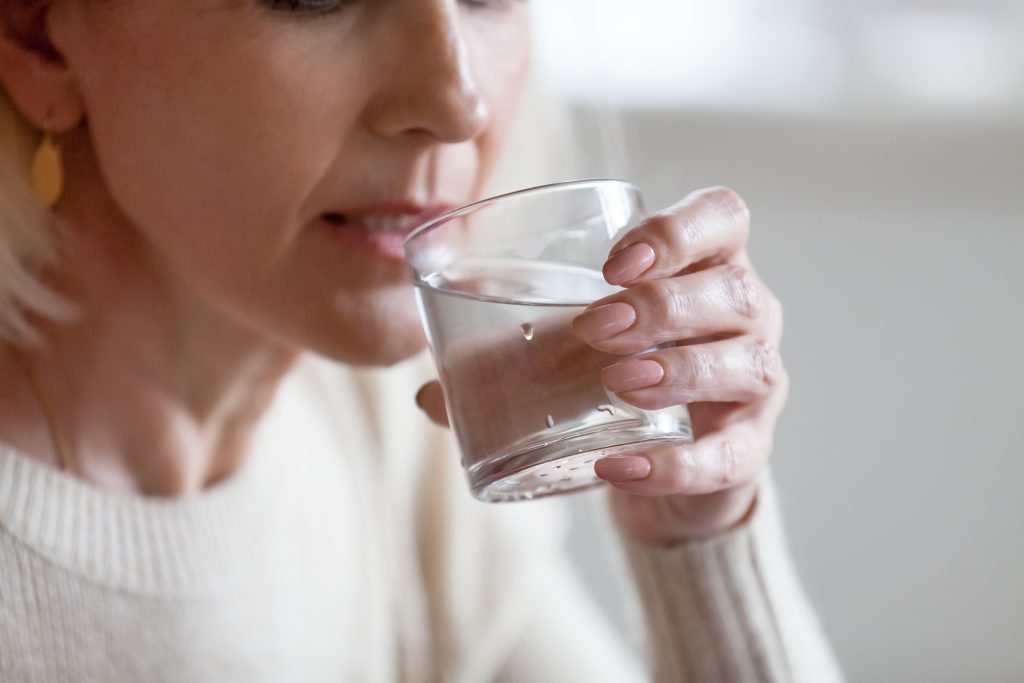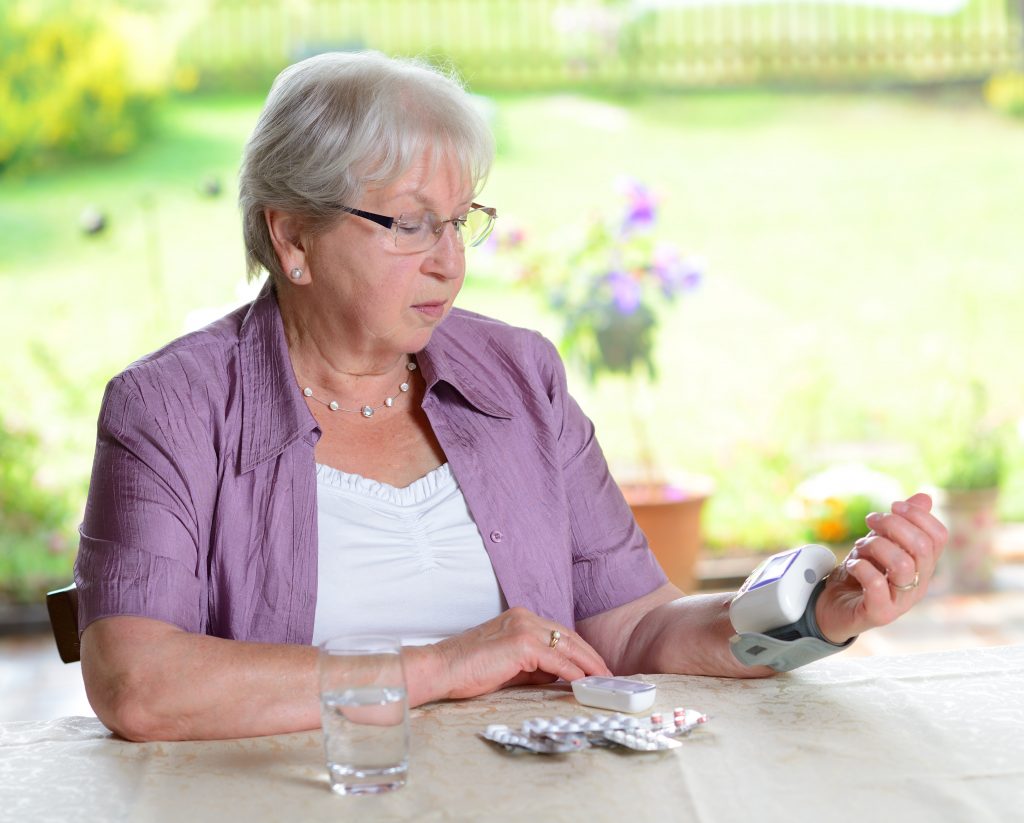December 21, 2021
Can Dehydration Cause High Blood Pressure?
High blood pressure is a chronic condition where the force of your blood is higher than normal and pushes strongly against your blood vessel walls. When it’s not treated, high blood pressure can lead to other serious health problems including heart attack and stroke.
Many different factors can cause high blood pressure. It’s possible that dehydration may cause high blood pressure.
Here’s a closer look at the link between dehydration and high blood pressure, as well as signs when you should see a doctor right away.
Can Being Dehydrated Cause High Blood Pressure?
“Dehydration is a possible cause of high blood pressure,” says Dr. Jason Varghese, a family medicine physician with Healthcare Associates of Texas.
Nearly 60% of the human adult body is made up of water. Your body needs water to carry out important functions. For instance, it helps regulate body temperature and flush out waste.
Dehydration occurs when your body does not have enough fluids. It can happen after a period of heavy sweating or if you’re not drinking enough water. It can also happen if you are sick and cannot keep fluids in your body due to excessive vomiting and/or diarrhea.
How Does Dehydration Affect Blood Pressure?
Dehydration can make your blood pressure go up or down to cause high blood pressure (Hypertension) or low blood pressure (Hypotension).
Low Blood Pressure
 Dehydration can cause your blood volume to decrease. Blood volume is the amount of fluid in your blood vessels. Having a normal blood volume is important because it allows your blood to reach all the tissues and organs in your body. However, a low blood volume can cause your blood pressure to drop.
Dehydration can cause your blood volume to decrease. Blood volume is the amount of fluid in your blood vessels. Having a normal blood volume is important because it allows your blood to reach all the tissues and organs in your body. However, a low blood volume can cause your blood pressure to drop.
If you’re dehydrated, your blood volume and blood pressure can drop too low. This can prevent your tissues and organs from getting the amount of oxygen and nutrients they need to stay healthy.
“When left untreated, low blood pressure can cause other issues, like heart and/or brain damage,” Dr. Varghese adds.
High Blood Pressure
When your body is dehydrated, it releases higher amounts of a chemical called vasopressin. Vasopressin helps your kidneys retain water, which can prevent you from losing more water through urination. At the same time, it causes your blood vessels to constrict, which then causes your blood pressure to increase. When this situation persists, you can develop high blood pressure.
What Are Other Symptoms of Dehydration?
“Dehydration has a lot of potential symptoms, including feeling extremely thirsty, dry mouth, darker-colored urine, and dizziness,” Dr. Varghese says.
Symptoms will usually occur before dehydration starts affecting your blood pressure.
Other symptoms of dehydration include:
- Less frequent urination
- Headache
- Fatigue
- Confusion
- Bad breath
- Dry skin
- Muscle cramps
- Cravings for junk foods
Drink some water if you are experiencing any of the above symptoms. Also, think about your recent water intake to determine whether you have been drinking enough. For example, are you having these symptoms after spending several hours in the sun? If so, it’s possible you have not been drinking enough water and may be dehydrated.
What Causes Dehydration?
Dehydration can happen for a variety of reasons. It can happen if you are sick and cannot keep fluids down for very long. It can also happen if you don’t have enough water on hand, such as during a road trip.
- Vomiting and having diarrhea, which can cause you to loose fluids
- Heavy sweating during strenuous exercising
 Fever
Fever- Frequent urination
- Drinking beverages like coffee or alcohol, which increase urination
- Forgetting to drink water, such as when you are super busy
- Having kidney disease or uncontrolled diabetes
- Lack of access to clean drinking water
“I want to add that dehydration can occur even during cold winter months. Although you are not sweating profusely, you may become dehydrated if you don’t drink enough water which could lead to elevated or low blood pressure,” Dr. Varghese explains.
How Much Water Should You Drink Every Day?
Drinking lots of water throughout the day can prevent you from becoming dehydrated and reduce your risk of getting high blood pressure. Some doctors suggest drinking about eight glasses of water a day.
“The ‘correct’ amount of water you should be drinking every day can vary per person. It depends on numerous factors such as your weight, physical activity level, etc.,” Dr. Varghese explains.
Ask your doctor about how much water you should drink every day based on your personal health situation. Your doctor can review your medical history, talk to you about your lifestyle, and make the best recommendation based on this information.
What Are Other Causes of High Blood Pressure?
Dehydration is just one possible cause of high blood pressure. High blood pressure can also be caused by certain lifestyle behaviors or by other medical conditions.
Common causes and risk factors of high blood pressure include:
- Being overweight or obese
 Lack of exercise
Lack of exercise- Smoking
- Eating high amounts of salt
- Lack of potassium in the diet
- Heavy alcohol use
- Stress
- Thyroid disorders
- Sleep apnea
- Diabetes
- Kidney disease
- Tumors in the adrenal gland
- Using illicit drugs, such as cocaine and methamphetamine
- Using certain medications, such as birth control pills, antidepressants, and corticosteroids
“Most people don’t know when they have high blood pressure because high blood pressure doesn’t usually show any symptoms,” Dr. Varghese says.
However, some people with high blood pressure may experience headaches, shortness of breath, or bloody noses.
Doctors usually check your blood pressure during routine appointments, such as annual physicals or well-check visits. Make an appointment with your doctor if you think you may be at risk for high blood pressure. Getting your blood pressure under control can reduce your risk for heart attack, stroke, heart failure, and dementia.
When It’s Time to See a Doctor
Visit your doctor right away if you are experiencing the following symptoms:
- Diarrhea or vomiting that has lasted longer than 24 hours
- Rapid heart rate
- Extreme confusion
- Extreme exhaustion or fatigue
- Black or bloody stool
- Blurred vision
- Dizziness or lightheadedness
- Loss of conscious or passing out
- Cold, clammy skin
- Rapid, shallow breathing
- Weak and rapid pulse
The above symptoms may indicate that you are either severely dehydrated or have low blood pressure. Your doctor can perform an evaluation and talk to you about possible treatment options.
Treating High Blood Pressure with Healthcare Associates of Texas
Healthcare Associates of Texas is home to a large team of board-certified medical professionals who can work with you to treat high blood pressure. Our doctors can talk to you in more detail about the link between dehydration and blood pressure, and what you can start doing today to improve your overall health. Click here to find your nearest location and request an appointment.
DISCLAIMER
The information featured in this site is general in nature. The site provides health information designed to complement your personal health management. It does not provide medical advice or health services and is not meant to replace professional advice or imply coverage of specific clinical services or products. The inclusion of links to other web sites does not imply any endorsement of the material on such websites.
